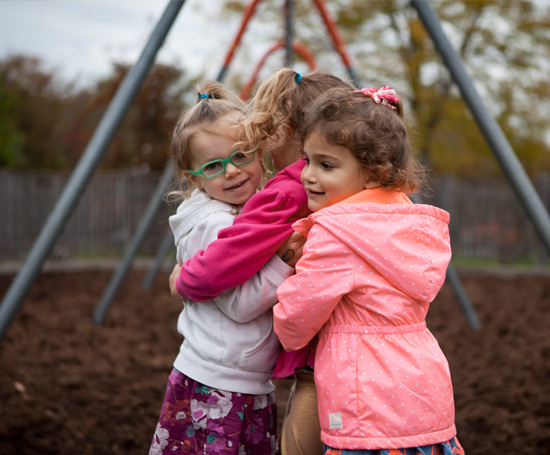Respecting Children as Unique Individuals
At Groton Community School, we guide children gently and respectfully, encouraging them to be independent, self-directed, and responsible for their actions. Because these skills develop gradually with many experiences and repetitions, we gear our expectations to each child’s developmental level. Children’s behavior is affected by their environment, emotional well-being, language skills, social experiences, curiosity, interests, physical development and health. We expect that children will experiment with behavior as their way of learning how to get along in the world. When adults understand the origins of behavior, and are compassionate, empathetic, clear and consistent in their expectations, children are naturally guided toward appropriate behavior.

We guide children who may exhibit challenging behaviors in various ways, depending on their age. Teachers are sensitive to differing abilities, temperaments, and activity levels. Helping children to identify feelings is an important skill as a prerequisite for learning to regulate their emotional, social, and communication skills. Redirection and modeling are especially useful strategies to employ with younger children, along with teacher guided practice with communication skills, problem-solving techniques, coping skills, and finding alternative solutions as they grow. Anticipating behaviors and designing the learning environment carefully can often prevent problems before they arise.
Teachers respond to children at all times calmly and consistently, with respect and concern for the safety of everyone. We do not allow children to hurt themselves or others. Children are not deprived of special privileges or food because of behavior problems. We never intimidate, yell, curse, hit, physically mishandle or humiliate a child. Children will not be punished for soiling, wetting, or not using the toilet.

Creating a positive emotional climate for children involves conversation, warm interactions, acknowledgement of accomplishments, and consistent and age appropriate responses to children’s emotions. Actively promoting social and emotional development is an important part of our school curriculum. Teachers guide children in recognizing, expressing and regulating their own emotions, and responding to the emotions of others in appropriate ways. Effort is made to counter bias and stereotypes, and to discuss the similarities we all share, as well as respecting and valuing differences. We foster the development of friendships, and support children as they learn to share and learn how to play cooperatively together. We explore the principles of belonging and friendship, compassion, cooperation, and kindness with children. We take our school name seriously, and strive to create a classroom and school “community” together.
We meet the needs of children and their families with emotional support and educational guidance. We utilize consultants on staff and in the community as resources, and assist families in utilizing resources, as well. All employees are trained to recognize signs and symptoms of abuse and neglect, and are required to report any suspected incidents to the Department of Social Services and the Massachusetts Department of Early Education and Care.